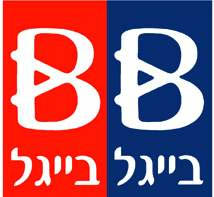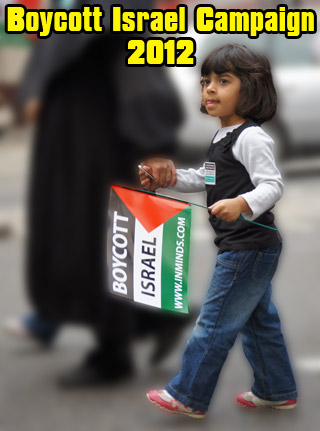
 Innovative Minds © 2014. All Rights Reserved. www.inminds.co.uk | ||||||||||||||
Unilever to sell stake in plant based in West Bank settlementToni O'Loughlin, The Guardian  Beigel & Beigel factory on illegal settlement of Ariel The food and soap manufacturing multinational Unilever has announced that it will divest from an Israeli factory in a Jewish settlement illegally built on land confiscated from Palestinians. Unilever, which makes household staples such as Sunsilk shampoo, Surf washing powder and Vaseline, said it would sell its 51% stake in the Beigel & Beigel factory in the West Bank settlement of Ariel. The UK and Dutch-owned multinational has followed Harrods department store - which cleared its shelves of Beigel & Beigel products, such as pretzels, in August - and a campaign by Britain to crack down on Israeli settlement businesses that are allegedly dodging EU import taxes. Unilever's announcement also came ahead of a report on its investment in the occupied territories by United Civilians for Peace, a Dutch human rights group. UCP said the decision of Unilever, which defied the international boycott against South Africa during the apartheid era, showed that the firm was "serious" about international law and social responsibility. But Unilever Israel, which bought half of Beigel & Beigel in 2001, said the move was strategic, not ethical. "This decision has been taken with reluctance after a long period of analysis and review," it said. "Following the divestment in recent years of a number of non-core businesses ... the decision has been reached to divest of its interests in the bakery business and will therefore seek to find a buyer for Unilever's share in the Beigel & Beigel partnership," the company said in a statement. Ariel is one of three large Israeli settlement blocs that penetrate and separate northern and southern parts of the West Bank. It is surrounded by a network of roads that Palestinians are forbidden to use without special permission. The settlement is built on land that Israel conquered in the 1967 Six Day war. According to UCP, the land for the Beigel & Beigel factory, in Ariel's Barkan industrial estate, was confiscated from the surrounding Palestinian villages in 1981 by a Israeli military order. "International law prohibits the confiscation of occupied land not for military purposes," the UCP report says. It also claims that Unilever is in effect supporting Ariel because it pays taxes to the Shomron regional council, which provides services such as rubbish disposal to Barkan. In return, Unilever receives, via Beigel & Beigel, some of the "generous" subsidies that Israel pays companies to produce in settlements. Companies that operate in settlements also benefit from employing cheap Palestinian labour, the report says. At Beigel & Beigel, 45% of the 140 workers are Palestinians from the surrounding villages whose land was confiscated for the construction. Most of them work on the assembly line operating machines and contrary to Unilever's own labour standards, they are not paid the Israeli minimum wage, the report claims. Many workers are paid to work 46.5 hours a week but they often work 50 hours with no compensation. One worker, who must pass through a checkpoint gate to go home after work, told UCP that he is often unable to return to his village. Source: http://www.guardian.co.uk/world/2008/dec/01/israel-palestine-unilever Unilever to sell West Bank plantMichal Levertov, Jewish Chronicle The multinational company, Unilever, is to sell its share in a food factory located in a West Bank settlement. The Anglo-Dutch company, the manufacturer of 400 brands in 150 countries, intends to sell its 51 per cent stake in the Beigel & Beigel pretzel factory, based in the Barkan industrial zone near the settlement of Ariel. In October, Swedish company Assa Abloy decided to move a locksmith plant from the same industrial zone following NGO reports warning that companies may be subject to law suits over the violation of international law if their factories are located in such areas. The Unilever announcement was made one day before the release of a report by a Dutch human rights group, United Civilians for Peace, alleging that the land on which the industrial zone is located was confiscated in 1981 from Palestinian villages by an Israeli military order, and that its current use as an industrial zone is therefore a violation of international law. However, a Unilever Israel spokesman said that the company was simply rationalising and that âthe decision has been reached to divest of its interests in the bakery businessâ. He added: âThe decision to seek a buyer for our stake in Beigel & Beigel has nothing to do with any arguments by lobby groups or any other interest group. âThe internal discussion in Unilever on this subject began many years ago and certainly well before any contact by any lobby group was made.â About 120 Israeli businesses operate in the Barkan industrial zone. Four years ago, the Israeli company Barkan Wineries began moving its operations to Kibbutz Hulda, in southern Israel. The move happened after the Israeli soft drinks concern Tempo, who holds ownership of the wineries, entered into a partnership with the Dutch beer company Heineken. Britain has also been pressing the European Union to be stricter about labelling imports produced in settlements. Source: http://www.thejc.com/articles/unilever-sell-west-bank-plant Related Articles
Also Of InterestPage URL: http://www.inminds.com/article.php?id=10284
|
|
Support Us
If you agree with our work then please support us.Campaigns INMINDS Facebook Live Feed Latest Video's
INMINDS Twitter Feed Tweets by @InmindsComFeatured Video's
You need Flash player 8+ and JavaScript enabled to view this video.
[all videos (over 200)..] Featured MP3 Podcast  "You cannot simplify the question of violence.. You look at human history - the American revolution, the civil war, the end of slavery in the United States, the African National Congress, the end of colonialism - by and large these were some combination of popular social uprisings and social movements and non-violent protests AND armed resistance. Now that doesn't mean I'm advocating for any armed action today, I'm not. I'm committed to finding ways of acting and speaking and making people laugh and doing art and disrupting the war machine in other ways, but I think focusing on violence when we have the comfort of being protected by mass of armed violence is not non-violence at all.. if you are pointing to the mass of violence and who's doing the mass of violence in the world today, you have to look to state violence - that's people bombing whole cities from the air.. " A founder of the Weather Underground, a revolutionary group that waged war against the US government in the 70s in response to the Vietnam War. Interview, Radio Neatherlands (TSWI) 30 June 2007 [12min / 6Mb] [all podcasts..] Newsletter Feedback |
 |
 |




















































